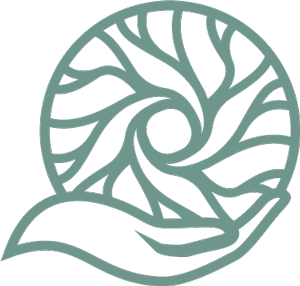The term “movement disorder” is a collective term that refers to a wide range of neurological conditions that affect voluntary and involuntary movement. You may suffer from movement disorders for numerous reasons, such as cervical dystonia, ataxia, Huntington’s disease, Parkinson’s disease, and more. The Multiple Sclerosis and Neurology Institute of Austin is led by neurology specialists with knowledge about various movement disorders and their treatment. If you or a loved one would benefit from seeing a movement disorders specialist in Austin, please schedule a consultation today.
Movement Disorders FAQs

What are movement disorders?
The term “movement disorders” refers to a wide range of neurological conditions that cause spasms, shaking, jerking, and other abnormal movements, either voluntary or involuntary. Movement disorders can cause excessive movement (hyperkinetic), reduced intentional movement (hypokinetic), or abnormal involuntary movement (dyskinesia). Because of the complexity of movement disorders, our neurological experts work closely with you and other medical experts to curate a personalized treatment plan.
What are the symptoms
of movement disorders?
The symptoms of movement disorders depend on the root cause of your condition. However, the following are some of the most common symptoms of movement disorders:
- Problems while walking
- Functional weakness in one leg
- Dragging one leg
- Intermittent spasms and muscle contractions
- Jerking and twitching movements in response to external stimuli
- Shaking in the face, voice, legs, trunk, arms, or hands
- Tremors or involuntary muscle movements in different parts of the body
- Involuntary movements and sounds
- Uncomfortable sensations in the legs

What are the types of movement disorders?
- Ataxia: Uncoordinated or clumsy speech and limb movements.
- Cervical Dystonia: Long-lasting spasms or intermittent neck muscle contractions.
- Chorea: Repetitive and irregular involuntary movements of the face or limbs.
- Dystonia: Sustained involuntary twisting and repetitive movements.
- Huntington’s Disease: Uncontrolled movements with psychiatric and cognitive problems.
- Multiple System Atrophy: Symptoms of ataxia and parkinsonism with low blood pressure.
- Myoclonus: Extremely fast muscular jerks.
- Parkinson’s Disease: Stiffness, tremors, and imbalance issues.
- Parkinsonism: Group of conditions with the symptoms of Parkinson’s disease.
- Progressive Supranuclear Palsy: Issues with walking and balance.
- Restless Leg Syndrome: Incessant movement of the legs.
- Tardive Dyskinesia: Repetitive involuntary movements, such as eye blinking and grimacing.
- Tourette Syndrome: Repetitive vocal and motor tics.
- Tremor: Rhythmic tremors on different parts of the body, such as the hands and head.
- Wilson’s Disease: Neurological problems caused by excess copper buildup.

How are movement
disorders diagnosed?
The Multiple Sclerosis and Neurology Institute of Austin is led by highly-skilled and trained neurological experts who perform thorough evaluations to diagnose the type of movement disorder. The evaluation includes a physical examination, a discussion of your symptoms, and a comprehensive review of your medical history. The medical provider also records your movements, consults with other specialists, and performs imaging tests, blood tests, and genetic tests. After a comprehensive evaluation, the medical provider curates a personalized treatment plan for your specific movement disorder.
What are the treatments
for movement disorders?
The treatment plan for your movement disorder depends on your unique conditions. Many disorders still don’t have a cure, so the treatment may consist of symptom management. Depending on your unique condition, the treatment plan may include medications, physical therapy, speech therapy, occupational therapy, emotional support, psychiatric counseling, deep brain stimulation, etc. Our medical providers develop a personal relationship with the patient to offer ongoing care and support. If you or a loved one is suffering from the symptoms of a movement disorder, please schedule a consultation at our medical center to see our movement disorders specialist in Austin.



